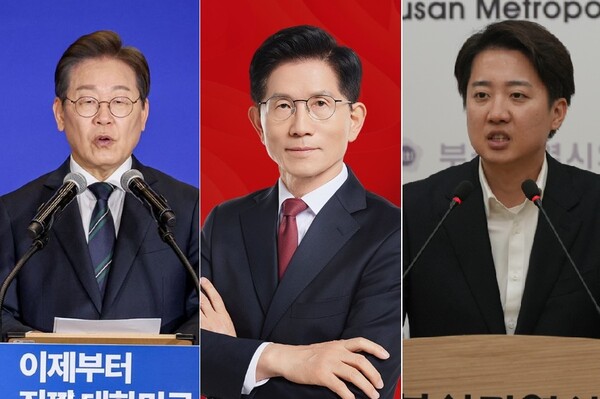The Korean Medical Association (KMA), a group of some 140,000 Korean doctors, has critically evaluated the healthcare pledges of major candidates ahead of Korea’s 21st presidential election, emphasizing the need for clearer implementation strategies and expert-driven policymaking.

In a briefing on Friday, KMA spokesperson Kim Seong-geun urged that healthcare reforms by the incoming administration must prioritize restoring a healthcare system currently described as "collapsed." He underscored the importance of incorporating input from medical professionals to ensure policies effectively promote public health and sustainability.
For candidate Lee Jae-myung (Democratic Party of Korea), the KMA expressed broad agreement with pledges to enhance essential, regional, and public healthcare, address emergency room overcrowding, and develop a primary care system based on a personal doctor model.
However, it criticized proposals to expand medical schools and establish regional medical colleges, recommending instead effective incentives and improved infrastructure to retain medical personnel in underserved areas.
Notably, the association firmly opposed unrestricted telemedicine due to concerns over healthcare quality and supported only limited, supplementary usage.
Regarding candidate Kim Moon-soo (People Power Party), the KMA welcomed pledges to "rebuild the healthcare system within six months" and establish a "Presidential Future Healthcare Committee," advocating for significant professional representation in such bodies.
However, it emphasized the necessity for detailed financing strategies for commitments like the national dementia responsibility scheme and the inclusion of caregiving expenses under national health insurance, highlighting concerns about the potential financial strain on insurance funds and calling for thorough financial scrutiny.
Candidate Lee Jun-seok (Reform Party)'s proposal to separate the Ministry of Health from the current Ministry of Health and Welfare was positively viewed, aligning with long-standing calls within the medical community.
Nonetheless, the KMA noted that this organizational change must go beyond mere restructuring. It emphasized the importance of establishing expert-led decision-making processes, ensuring independent budget management, and securing human resources autonomy to effectively manage health insurance funds and reform healthcare delivery comprehensively.
Additionally, the KMA outlined seven key policy areas requiring attention from all candidates, including healthcare governance reform, global medical talent development, future medical technology and industry innovation, enhancement of primary care and community healthcare, ensuring essential medical services, addressing regional healthcare disparities, and preventing medical disputes while restoring trust in healthcare services.
Spokesperson Kim urged ongoing dialogue and collaboration between the government and healthcare professionals to ensure policies support sustainable development and prioritize public health effectively.
Related articles
- Presidential candidates: Who will rewrite Korea's healthcare playbook?
- Ahead of presidential election, calls for shorter service for public health doctors gain momentum
- Presidential candidates clash over health insurance financing in TV debate
- Doctors group seeks audit of health ministry over med school admission expansion
- Doctors question viability of presidential candidates' public med school plans
- Doctors' group urges new government to prioritize restoring trust
- Pediatricians slam telemedicine bill as ‘political decision’ that endangers children’s safety

